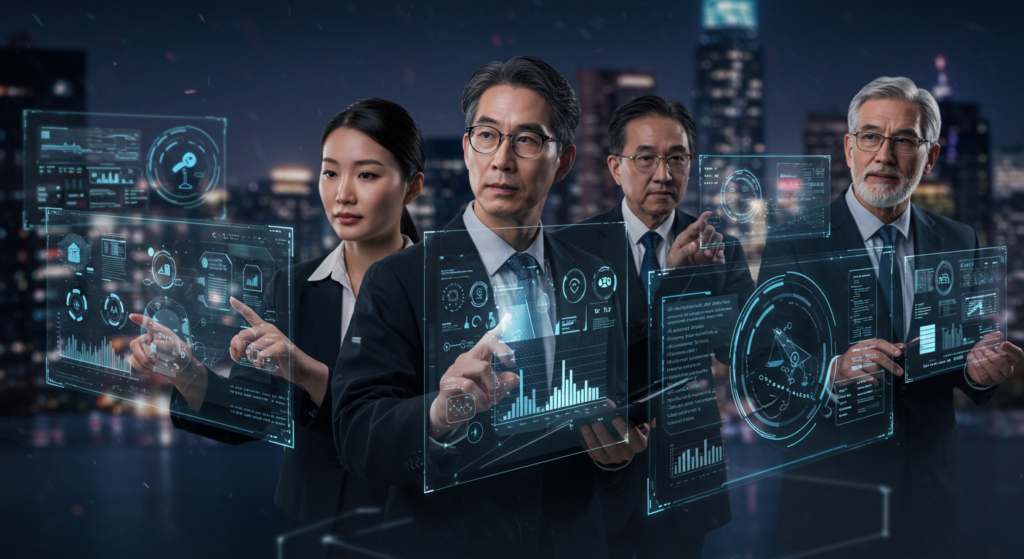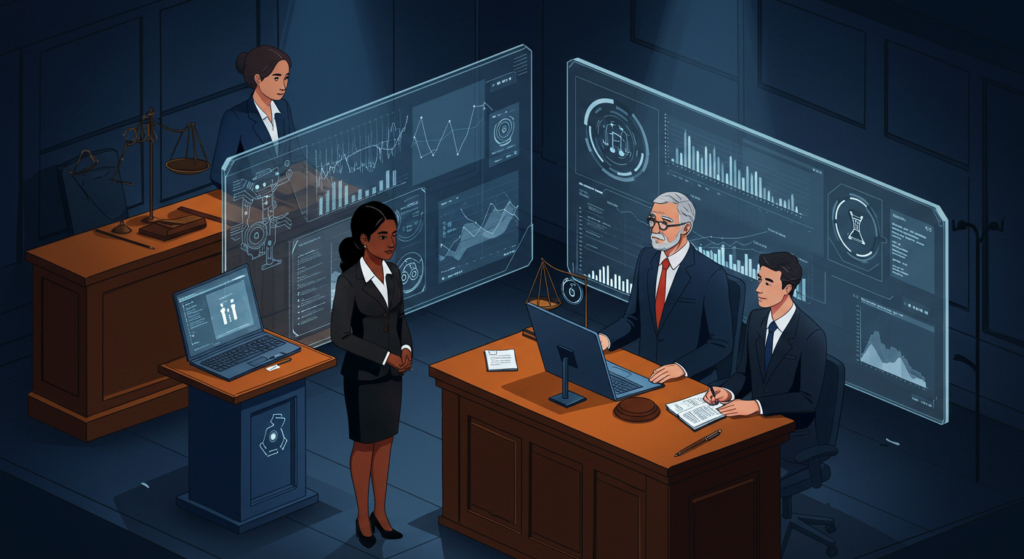The legal profession is undergoing a profound transformation, driven by the rapid advancement of artificial intelligence (AI). As we step into 2025, AI is reshaping the way legal services are delivered, improving efficiency, enhancing decision-making, and revolutionizing client interactions. From contract analysis to predictive analytics, AI-powered solutions are streamlining traditional legal processes and reshaping the future of law in the USA. In this comprehensive article, we explore how AI is transforming the legal profession in 2025, covering key trends, challenges, and opportunities for lawyers and law firms.

1. The Rise of AI in the Legal Industry
1.1 AI and Legal Automation
One of the most significant impacts of AI in law 2025 is automation. AI-driven tools are eliminating manual tasks such as contract drafting, document review, and legal research. By automating these processes, lawyers can focus on higher-value tasks, such as strategy development and client representation.
1.2 Predictive Analytics in Legal Decision-Making
AI-powered predictive analytics is revolutionizing case outcomes. By analyzing vast amounts of legal data, AI can predict the probability of success in litigation, helping lawyers make data-driven decisions and optimize their legal strategies.
1.3 AI and Case Law Research
Legal research has traditionally been time-consuming and complex. AI-driven legal research tools can scan thousands of legal documents in seconds, identifying relevant case laws and precedents, saving lawyers valuable time and improving accuracy.
2. AI-Powered Contract Management
2.1 Smart Contracts and Blockchain Integration
Smart contracts powered by AI and blockchain technology are automating contract execution. These self-executing contracts reduce disputes, improve transparency, and ensure compliance with legal agreements.
2.2 Contract Review and Analysis
AI-powered contract analysis tools can detect errors, inconsistencies, and legal risks in contracts. This automation improves accuracy and minimizes the risk of contractual disputes.
2.3 AI-Assisted Contract Drafting
With natural language processing (NLP), AI can draft legal documents with minimal human intervention. These AI-driven tools help law firms create standard contracts quickly and efficiently.

3. AI in Litigation and Dispute Resolution
3.1 AI in E-Discovery
E-discovery is a critical component of litigation. AI algorithms can process vast amounts of digital evidence, categorize documents, and identify relevant information, making the discovery process more efficient.
3.2 Virtual Courtrooms and AI Judges
The rise of virtual courtrooms has accelerated AI’s role in dispute resolution. Some jurisdictions are experimenting with AI-assisted judges for small claims cases, enhancing accessibility to justice.
3.3 AI in Mediation and Arbitration
AI-powered mediation tools analyze case facts and historical outcomes to propose fair settlement solutions. This speeds up dispute resolution and reduces legal costs for clients.
4. AI-Driven Legal Marketing and Client Interaction
4.1 Chatbots and Virtual Legal Assistants
AI-powered chatbots are revolutionizing client interactions. These virtual assistants provide instant legal information, schedule appointments, and answer frequently asked questions, improving client engagement.
4.2 AI in Legal Marketing Trends 2025
AI is optimizing legal marketing by analyzing client behavior, personalizing content, and improving lead generation. Law firms using AI-driven marketing strategies gain a competitive edge in client acquisition.
4.3 AI-Powered Client Relationship Management (CRM)
AI-driven CRM tools help law firms manage client interactions, track case progress, and send automated updates, enhancing client satisfaction and retention.

5. Ethical Considerations and Challenges of AI in Law
5.1 Legal Ethics in AI Adoption
The increasing use of AI in law raises ethical concerns. Lawyers must ensure that AI-driven decisions remain fair, unbiased, and transparent.
5.2 Data Privacy and Security Issues
With AI handling vast amounts of sensitive legal data, cybersecurity for lawyers 2025 becomes a top priority. Law firms must implement robust data protection measures to prevent cyber threats.
5.3 The Human-AI Balance in Law Practice
While AI enhances efficiency, it cannot replace human judgment and legal expertise. Lawyers must strike a balance between AI-driven automation and personalized legal counsel.
6. The Future of AI in the Legal Profession
6.1 AI’s Role in Legal Education Trends 2025
Law schools are integrating AI into their curricula, equipping future lawyers with the skills needed to navigate an AI-driven legal landscape.
6.2 AI and Diversity in Law Firms 2025
AI is promoting diversity by eliminating biases in hiring and case evaluation, fostering a more inclusive legal profession.
6.3 AI and Sustainable Law Practices 2025
AI is helping law firms reduce paper usage, automate administrative tasks, and implement eco-friendly practices, contributing to sustainability in the legal industry.

Conclusion
AI is undeniably transforming the legal profession in 2025. From legal automation trends to AI-powered contract management, litigation support, and marketing strategies, AI is revolutionizing every aspect of law practice. However, lawyers must navigate ethical challenges, ensure data security, and maintain a balance between AI-driven efficiency and human expertise. By embracing AI innovations while upholding ethical standards, USA lawyers 2025 can thrive in the evolving legal landscape and meet the dynamic demands of modern clients.
